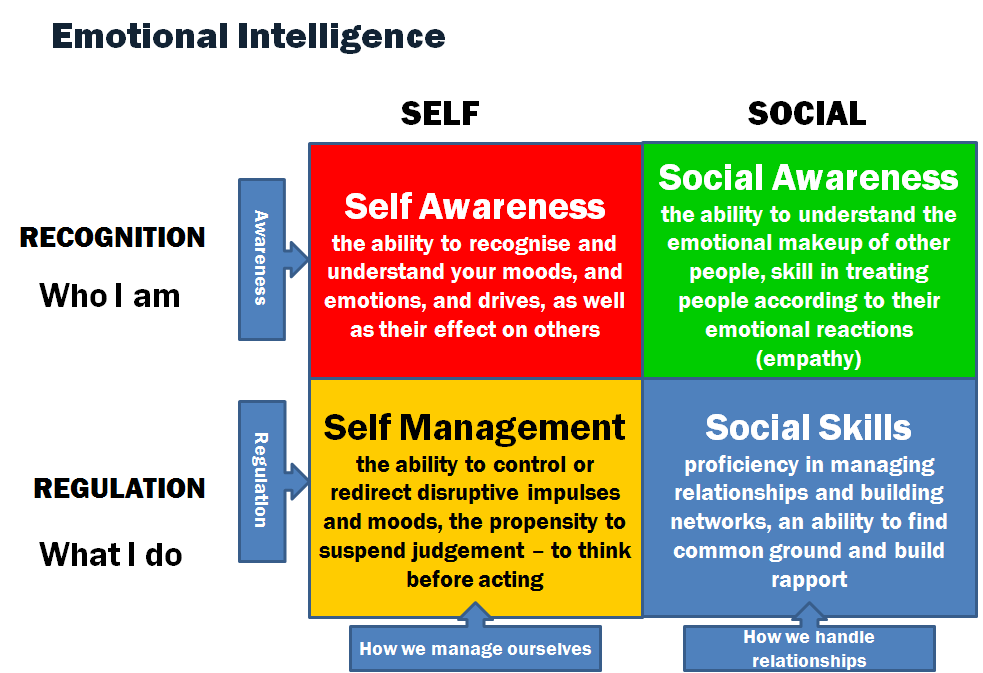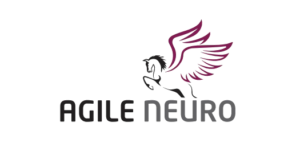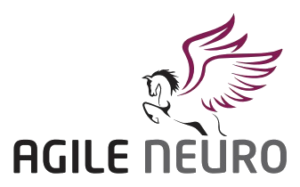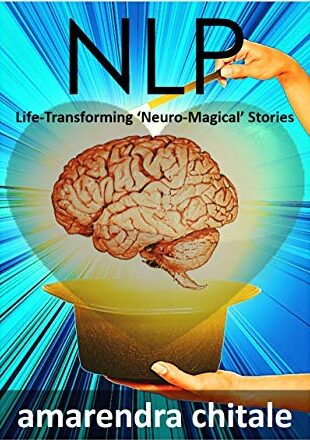
I’ve been conducting NLP, Emotional Intelligence and Neuro-Leadership Certifications for quite some time now through open workshops and corporate engagements. I have always been asked a lot of questions about these psychology-based courses before people enrol for any of these. And one of the most frequently asked questions is, “What is the difference between Emotional Intelligence and NLP”? “Which course should I opt for”? The questions are pretty much valid and one must know what each training has to offer. Neuro-Leadership is an open and shut case because it talks of Brain-based Leadership Interventions or techniques. Leadership starts in the head first and then results in the appropriate behaviour to get the right results. But I’ve realized, people are a little confused about Emotional Intelligence (EI) and Neuro-Linguistic Programming. That’s the reason I thought of shedding some light on this topic through this blog.
Let us talk of Emotional Intelligence first up. As the name suggests, EI is about how you can be intelligent about making emotions your strength. Believe me, Emotions are your strength but they can easily be your weakness. Some people find the name a little unusual. “There is ‘Emotional’ and there is ‘Intelligence’ as well. How funny”. Most of the people think that the mind and the heart cannot go hand in hand, whereas, the heart has nothing to do with emotions. The brain is the place where emotions are manifested. Emotions are nothing but chemicals or peptides (which are made of proteins) which are produced in the Thalamus and pumped in the body in a matter of 6 seconds. These emotions are produced based on situations or external triggers or events. Sometimes, they are also triggered due to internal triggers like remembering an event or any kind of memory. So, you have happy or positive emotions and you have negative emotions. Emotional Intelligence is the ability to recognize, regulate and effectively communicate our own emotions. It is also the ability, capacity and skill to perceive, assess and manage the emotions of one’s self and of others. Emotional Intelligence is a competency of how well you regulate or channelize your emotions to have the ideal temperament in any overwhelming situation, positive or negative. You can read more about this in detail over here.

See the picture above. It is quite clear that one team had a better temperament to deal with the pressure in the sudden death situation and the other team probably had a momentary lapse. Doesn’t this happen in day-to-day life in any other aspect? People are not un-resourceful, they are in un-resourceful states. Mad, Glad, Bad, Sad! What would you rather be? The follow-up question is, do you have a choice? Of course, we do! There are definitely a lot of interventions to feel the way we want to. Emotional Intelligence training teaches you all the interventions to keep you at the right place emotionally. Right temperament at the right time helps in achieving success.
Being emotionally intelligent revolves around:
- Self-Awareness (how much do you know yourself realistically, being in the present)
- Self-Management (how well can you manage yourself well based on your SWOT)
- Others Awareness (how well can you read and understand people for their SWOT)
- Others Management (Social Skills and Leadership Skills)

Self-awareness and Others-awareness involves understanding the personality-behavioural inventory and Others-management involves customizing your behaviour and communication for better results from others. Self-awareness also involves knowing and analysing your Values inventory and aligning them for betterment in all areas of life. Emotional Intelligence Training will help in understanding and achieving all this. It has its
applications in:
- Leadership
- Relationships
- Career decisions
- Competitive Temperament
- Having right mindset in any walk of life
- Dealing with difficult situations
- Dealing with difficult people
- Psychometrics
- Managing Stress
- Work-life Balance
Finally, how do you know if you are emotionally intelligent? Take our FREE EQ Assessment which will give you a detailed analysis.
Now let us look at what is NLP? If you ask various NLP certified professionals, you will get a different definition of NLP from each one of them. I’m listing down my version which makes sense in my model of the world and hopefully, you will resonate with it as well. NLP can be divided into Neuro, Linguistic and Programming. Neuro is the brain and the central nervous system along with the 5 senses which are responsible to capture the subjective experience. Everyone’s subjective experience is different. Your subjective experience puts you in an internal state which reflects in your physiology and behaviour. If the behaviour is right, you will achieve your goals and vision. Linguistics is about how we code our thoughts in the form of a language. Your success in life depends on how well you communicate using your verbal and non-verbal language. Programming is about how we program the brain to enhance its potential to achieve one’s goals. You can read more about what is NLP.
But let me just give you an idea of what is on offer if you become an NLP Practitioner (5 days course) or Master Practitioner (12 days course) or even a Trainer of NLP (14 days course). These are the 3 levels of NLP. Emotional Intelligence on the other hand is an end to end course of two days but does great justice towards building optimum temperaments and being emotionally agile. EI also doesn’t have levels like NLP. At least we at Agile Neuro don’t break down EI into various levels because it is a very compact concept.
So why is NLP so lengthy as far as duration is concerned? Because it is applied Psychology. And Psychology is meaty, beefy and complicated. NLP has inter-personal effectiveness applications as well as therapeutic applications. It also has a lot of Linguistic interventions to be learnt including some part of Hypnosis. Here are some interventions which are covered in the first level of NLP which is NLP Practitioner:
- Understanding the neurology
- Defining Well-formed outcomes
- Problem-solving model (for self and others)
- Understanding Cause and Effect
- Understanding Learning styles/ Representational systems
- Identifying cognitive strategies and mental programs
- Sensory Acuity (for calibrating other people to recognize and utilize physiological cues and states)
- Techniques of how to build Rapport (range of applications in day-to-day personal and professional life)
- Sub-modalities (applications in taking away unwanted obsessions and cravings and helps in building the right motivation in various scenarios)
- Managing personal states
- Anchoring (dealing with limiting beliefs, self-motivation, feeling differently about the past, Coaching applications)
- Achieving and maintaining States of Excellence
- Parts integration (when there is confusion about what to do when there are multiple options
- Perceptual Positions (effective Conflict Management Skill, getting wisdom from multiple perspectives)
- Strategies for learning, motivation, decision making and creativity
- Elicit and utilize strategies of Excellence, modelling a skill for accelerated learning
- Recognizing and utilizing effective Language Patterns for the right results
- Learning time-based techniques for dealing with past traumas
- Phobia cure technique to deal with irrational fears
- Giving up unwanted habits
NLP has its application in various areas of work and personal life. I have run a lot of open workshops and workshops for Corporates on applied NLP. To name a few, some of the topics are given below:
- Selling effectively using NLP
- Coaching with NLP
- NLP for Parenting
- NLP for School Teachers
- NLP for better Relationships
- Goalsetting and achieving goals using NLP
- Making an impact at workplace using NLP
- NLP for Human Resource Development Function
- NLP in Sports
- NLP for film and television professionals
- NLP for Therapy
At the second level, that is, NLP Master Practitioner, we go a lot deeper in Brain as a Quantum machine, Quantum Linguistics and in further details as far as other therapeutic interventions are concerned. So along with getting certified as an NLP Master Practitioner, you are also certified as an Advanced Life Coach.
So, basically you will realize that Psychology is the big Papa of everything that is cognitive. NLP is a package of how various people have achieved excellence in their life by using certain strategies. These internal and external strategies were modelled by Richard Bandler and John Grinder and were introduced to everyone in the form of a package to do better in life. Emotional Intelligence deals with emotions and temperaments. It also deals with understanding self, mindfulness, understanding others and managing others with better social skills. NLP and EI may have around 20% overlap or common topics. However, everyone needs to decide for themselves, what would they like to be empowered with first. Both concepts are extremely important at application level in day-to-day life. But you may want to start off with learning something which will make an immediate difference in your life in a short time. Feel free to connect with me on this because positive change happens only by adding resources.









